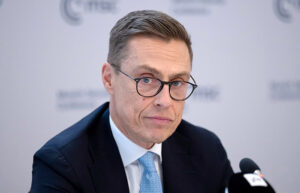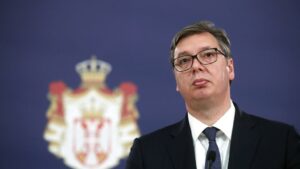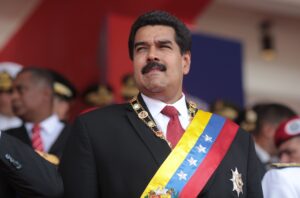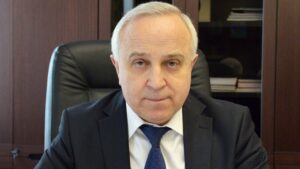
A peace agreement in Ukraine is unlikely to be reached before spring, and European allies must continue to support Kiev despite the corruption scandal, Finnish President Alexander Stubb said in an interview with the Associated Press.
“A peace agreement in Ukraine is unlikely to be reached before spring. European allies need to continue their support despite the corruption scandal that has engulfed Kiev,” he said.
Stubb is using his good relations with US President Donald Trump to defend Ukraine’s position: “I can explain to President Trump what Finland has gone through, how I see the situation on the battlefield, or how to deal with Russian President Vladimir Putin. And then, you know, if he accepts one of my ten ideas, that’s good,” he said.
He also recalled Finland’s historical experience: in the 1940s, after two wars with Russia, the country lost about 10% of its territory and remained militarily neutral. Finland’s neutral position was only revised after Russia’s full-scale invasion of Ukraine, when the country joined NATO.

As reported by the Serbian Economist, Vučić said: “We can hold presidential and parliamentary elections together” already in 2026.
Serbian President Aleksandar Vučić announced that he will not run for another presidential term and also allowed the possibility of holding early elections as soon as 2026.
“I officially have about a year and a half left until the end of my mandate. But it will probably last shorter — we can hold presidential and parliamentary elections together,” Vučić said.
He emphasizes that he does not intend to change the Constitution to extend his rule.
Vučić’s current presidential term officially ends in 2027, but he allows that elections could be scheduled as early as December 2026 or even earlier.
In part of his statements, he criticized the opposition, saying its representatives are “immature and irresponsible” and “do not learn from their own mistakes.”
Aleksandar Vučić has held key state positions in Serbia since the early 2010s. In particular:
• He became President of Serbia on June 1, 2017.
• Before that, he led the government (as Prime Minister) and was the leader of the Serbian Progressive Party (SNS) for many years.
Source: https://t.me/relocationrs/1522

Venezuelan President Nicolás Maduro has announced the deployment (mobilization) of up to 4–4.5 million Bolivarian National Police officers in response to “threats from the US” and the build-up of American military presence in the Caribbean. This was reported by international media outlets, including El País, CBS News, and Al Jazeera.
According to the publications, Maduro’s statement came after the US decided to double the reward for information leading to his arrest and/or conviction to $50 million. The US State Department and the Associated Press/PBS agencies reported on the increase in the reward.
El País and other sources also note that Venezuela’s mobilization was a response to the deployment of US destroyers and other forces near the country’s coast, which has increased tensions in the region. Washington had previously accused Maduro of involvement in international drug trafficking and related crimes; the decision to increase the reward was announced this month.
American and international analytical publications note the growing military and political rhetoric on both sides and warn of the risks of further escalation. At the same time, there is no independent confirmation of the start of a “war” between the US and Venezuela; we are talking about mobilization steps and increased readiness against the backdrop of political confrontation.

The chairman of the supervisory board of the Kiev Aviation Institute (KAI) State University and founder of the Kontora Pi public organization, Petr Chernyshov, has announced the names of six of the eight candidates for the position of KAI president.
“Two candidates have decided not to disclose their names at this stage, so we are currently referring to them as Candidate X and Candidate Y. This is their legal right, and we respect it. We are maintaining a balance between the transparency of the process and the human right to privacy until the winner of the competition is announced,” he said in a Telegram channel.
The candidates for the position of president are: Andriy Andrikevich, chairman of the Industry Committee of the Kyiv Chamber of Commerce and Industry, formerly a lecturer in strategic management at Visotsky Consulting; Yuriy Korolev, IT entrepreneur, employee of AJAX, formerly associate professor at the University of Customs and Finance; First Vice-Rector of the State University of Information Technologies and Communications, former Head of the Department of Information Technology Security at the National Aviation University, Alexander Korchenko; Head of the Red Huber NGO; former representative of Ukraine in the European Student Union, Vladimir Ksenich; Acting President of the Kiev Aviation Institute, Ksenia Semenova; Associate Professor of the Department of Automation and Energy Management at the Kiev Aviation Institute, Sergei Tovkach.
Interviews with candidates will be held on August 26 and 27, 2025.

Yaroslav Hadzalo, President of the National Academy of Agrarian Sciences of Ukraine (NAAS), has been suspended from office by the Pechersk District Court of Kyiv until the pre-trial investigation is completed.
“In addition to the removal from office, the court partially granted the prosecutor’s request for a preventive measure, imposing a number of duties on the suspect… Due to the leniency of the chosen preventive measure, the prosecution filed an appeal, as it reasonably believes that there are risks of the suspect’s influence on the course of the investigation,” the Prosecutor General’s Office website said on Tuesday morning.
The NAAS President is suspected of aiding and abetting the embezzlement of budget funds committed by a group of persons by prior conspiracy (Part 5 of Article 27, Part 3 of Article 191 of the Criminal Code of Ukraine).
“He employed his driver at four state-owned agricultural enterprises controlled by him. In fact, the driver did not work there, but only drove the President of the National Academy of Sciences in the company car of one of the enterprises. In 2020, the president of the National Academy of Sciences personally approved the staffing tables, knowing that the same driver was involved in each of the enterprises. This allowed him to pay salaries for work that was not actually performed. As a result of these actions, money was paid from the budget for fictitious work,” the State Bureau of Investigation website reports.
It is reported that the personal driver of the President of the National Academy of Sciences received a salary totaling more than UAH 200 thousand from the state budget.
As reported, the Office of the Prosecutor General opened criminal proceedings on abuse of office by NAAS officials back in August 2020, after which Hadzalo was charged with a number of suspicions and repeatedly removed from office. In particular, he was suspected of assisting in the appointment of the head of a state-owned enterprise, interfering with the activities of an executive service employee, and transferring 150 thousand hectares of the Academy’s agricultural land to private individuals. Gadzalo denied that the Academy’s management received funds for the transfer of land under the control of other persons.

President of Ukraine Volodymyr Zelenskyy announced talks with President of Serbia Aleksandar Vucic, during which the parties discussed issues of cooperation between the two countries.
“I spoke with the President of Serbia, thanked Aleksandar for supporting our country and our people. We discussed our cooperation – bilateral and also with other partners,” Zelenskyy said in a Thursday evening video address.
He noted that he greatly appreciates the Ukrainian-Serbian dialogue. “Maximum constructive relations for Ukraine and joint security with partners,” the Ukrainian president added.